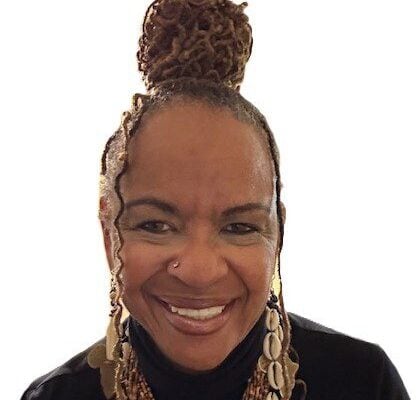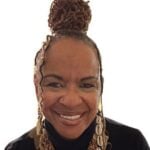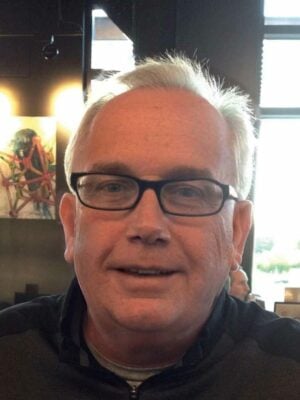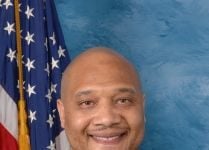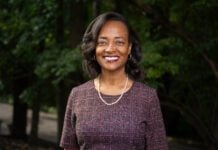Throughout history, the Black voice has never been silent.
It has been a voice that spoke truth to power, a voice that cried out against injustice, a voice that demanded to be heard even when it made some people uncomfortable. Our voice has survived slavery, Jim Crow, segregation, the war on drugs, mass incarceration and systemic erasure — and still, it rises.
From Olaudah Equiano, who chronicled the brutality of slavery in the 18th century, to Marcus Garvey, who galvanized movements for Pan-Africanism and Black nationalism in the 19th century, our ancestors used their words as weapons and shields. In the 20th century, the Black voice rang out from pulpits, picket lines, and protest songs. Marvin Gaye asked us, “What’s Going On?” while Gil Scott-Heron reminded us that “The Revolution Will Not Be Televised.” Each generation found its own way to make noise, to speak truth and to demand change.
As the U.S. prepares to celebrate another July 4th, we must ask: what does this day mean for Black America in 2025?
For me, the voice that continues to challenge us with that question is Frederick Douglass. On July 5, 1852, Douglass stood boldface before an all-white crowd and asked, “What, to the American slave, is your Fourth of July?”
Ten years later, on July 4, in the middle of the Civil War, he spoke again. This time he addressed a mixed audience in New York and shared truth — that the Civil War was about slavery — not just states’ rights as it was often portrayed. In 1875, Douglass was invited to speak on July 5 to a mostly Black audience in Washington, D.C. This was during the Reconstruction period, and Black people were trying to rebuild their lives from among the ashes of slavery.
Here is a disturbing truth: many of the issues Douglass confronted 150 years ago still haunt us today. The forces that sought to erase us from this country are still working overtime — in policy, in media, in classrooms and in law. Just like Douglass warned in 1875, there are still efforts to divide us, distract us and diminish us. Internal disunity, driven by centuries of systemic programming, keeps us from uniting against our shared oppressors.
I am compelled to use my voice to lift three powerful observations Douglass made in his 1875 speech that still demand our attention in 2025: self-hatred, the beggar mentality and the need for a strong Black press.
First, Douglass lamented how slavery had taught Black people to admire whiteness and despise themselves. That legacy of self-hatred did not die with emancipation — it mutated. It lives on today in the form of colorism, violence in our own communities, and a media landscape that often uplifts our trauma but not our brilliance.
Yes, systemic racism is real. But until we unlearn the lie that we are inferior, we will struggle to love ourselves, and if we cannot love ourselves, we will continue to harm each other. Self-love isn’t soft — it’s radical. It’s revolutionary.
Second, Douglass warned us against waiting for white benevolence. He was clear: liberation cannot be handed to us; it must be built by us. Too often, we’ve operated with a “renter” mindset — waiting for change and repair to come from someone else’s hand, someone else’s table. But we are not renters of this land, of our future or of our liberation. We must be builders. We must invest in ourselves, our communities, our businesses and our youth. We must stop begging for permission to matter.
Third, Douglass emphasized the need for a strong, independent Black press — a voice to speak for us and to us. That was lacking in his day. Today, we are blessed with outlets like the Indianapolis Recorder, which continue the work of telling our stories, lifting our truth and holding power accountable. But it is up to us to support and protect these institutions. They are not luxuries — they are lifelines.
I am using my voice to propose a call to action this July 4, 2025. Our voice matters now, even more than in times past.
The call to action is twofold.
First, we speak truth. Each of our voices has a role. Use your voice to affirm unity, to expose injustice, and to uplift our community. Be intentional about identifying ways to use your voice.
Second, we act. We identify, address and change self-defeating behavior.
Let July 4, 2025, be more than just a holiday. Let it be a rallying cry. Because when we speak, we shift the culture. When we unify, we reshape the future. And when we love ourselves, there is nothing we cannot overcome.
Our voice mattered throughout history. It still matters.
And it always will.
Maxine Bryant, Ph.D., is the founder of GriotSpeaks, an author and an African American culture keeper. She replaces mythology with truth about Africa and the African Diaspora experience. Learn more about her work at www.drmaxinebryant.com. She can be reached by email at mlb@drmaxinebryant.com.
MAXINE BRYANT
Maxine Bryant, Ph.D. is the founder of GriotSpeaks, author and African-American culture keeper. Dr. Bryant replaces mythology with truth about Africa and the African Diaspora experience. Learn more about her at www.drmaxinebryant.com and email her at mlb@drmaxinebryant.com.

